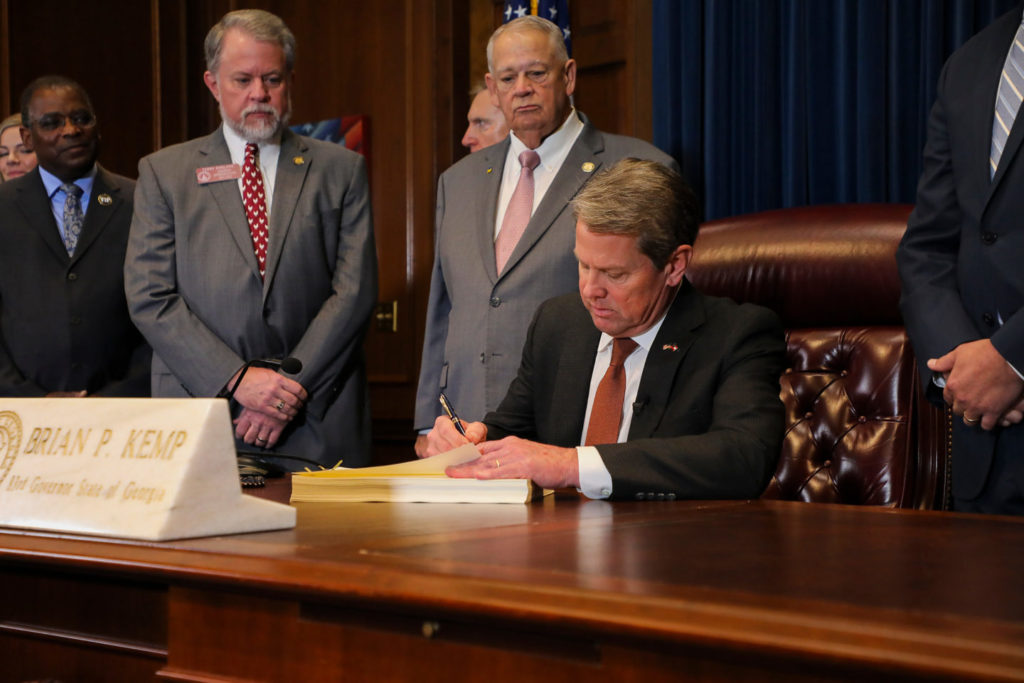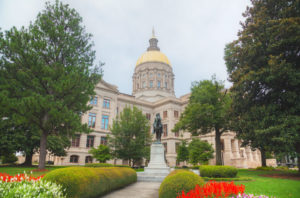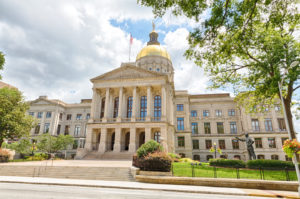Georgia governor signs law enshrining religious freedoms, limiting government interference
Georgia Gov. Brian Kemp signed a new bill into law to increase religious freedom protections.
SB 36, nicknamed the Georgia Religious Freedom Restoration Act, was modeled after the federal…

Georgia Gov. Brian Kemp signed a new bill into law to increase religious freedom protections.
SB 36, nicknamed the Georgia Religious Freedom Restoration Act, was modeled after the federal Religious Freedom Restoration Act (RFRA), which passed in 1993.
The measure declares no branch of government “shall not substantially burden a person’s exercise of religion” unless the burden meets three criteria:
- It is “in furtherance of a compelling governmental interest”;
- It is the “least restrictive means of furthering such compelling governmental interest”; and
- Citizens who have been burdened may still appeal to the judicial system “and obtain appropriate relief against government.”
The bill notes the Establishment Clause of the First Amendment – the government shall not make any law respecting an establishment of religion – is not undermined by these protections.
However, Democrats argued the bill would encourage discrimination against groups such as LGBT.
“At the end of the day, those who will bear the brunt of this are not those in the majority. It’ll be us, people in the religious minority,” said Rep. Ruwa Romman, D-Duluth, a Muslim and Palestinian-American.
Another lawmaker argued religious freedoms weren’t currently being violated.
“We are swatting at imaginary flies, and I’m sick of it,” said Rep. Stacey Evans, D-Atlanta.
However, bill co-sponsor Rep. Tyler Paul Smith, R-Bremen, defended the measure.
“This is not a license of private citizens to discriminate against private citizens,” Smith explained. “This prohibits the government from burning religious exercise in our state.”
Gov. Kemp praised the bill when he signed it into law on Friday.
“Today I signed SB 36, also known as the Religious Freedom Restoration Act, or RFRA, ensuring that once again at the state level, that Georgians are protected, including Georgians of faith,” Kemp said. “Georgia still remains a state that has no place for hate, and I can assure all Georgians of that today.”
Others also celebrated the bill’s passage as a victory for faith and freedom.
“Our laws should protect the freedom of every person to live and worship according to their faith,” said Greg Chafuen, senior counsel of Alliance Defending Freedom. “This law provides a sensible balancing test for courts to use when reviewing government policies that infringe upon the religious freedom rights of Georgians.”
“We thank the Lord that we got a clean RFRA,” said Mike Griffin, public affairs representative for the Georgia Baptist Mission Board. “We want to live for Christ in the public square. And we’re thankful for the responsibility that we’ve accepted here as citizens to ensure that our First Amendment rights are protected.”
Griffin added the First Amendment protects a lot more than just religious freedoms.
“Nobody should be against a RFRA if they’re in favor of the First Amendment, which would include freedom of press, freedom of speech, [and] freedom of assembly,” he said.
Nearly 30 states have passed state-level protections resembling RFRA, and 10 others have similar protections in their state constitutions.



